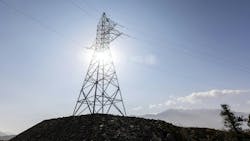Face the ‘Hyper-Complex Risk Environment’
To solve a problem — especially if it’s pervasive, painful, and ongoing — you must face it head on. You have to dive into it and feel the pain so that you can come up with the solution, get past it, and move forward in a better state. That problem for our industry is the transition to a decarbonized state. I know this “problem” stems from a problem — climate change, or in other terms, if you like: the need for good environmental stewardship — so I guess you could say in trying to solve one problem, we are creating another problem.
I wish it were simpler than that; that we could just decarbonize and be done. Our industry has been working on it for years. I always tell friends and family to not underestimate the utility industry’s motives and action in decreasing carbon emissions. Greenhouse gas emissions from electric power production have decreased by about 15% since 1990, according to the Environmental Protection Agency.
But people also shouldn’t underestimate the electric utility industry’s drive to ensure reliability, which is crucial all the time. I also like the term energy security because electricity really is a necessity now. As you know, these concepts are bumping up against one another at the moment.
Midcontinent Independent System Operator CEO John Bear, in a letter introducing the update to the MISO Reliability Imperative, did not hold back in naming and claiming the problems our industry is facing. “There are immediate and serious challenges to the reliability of our region’s electric grid,” he wrote.
He acknowledged that we could get to that decarbonized end state. In fact, studies conducted by MISO and other entities indicate it is possible to reliably operate an electric system that has far fewer conventional power plants and far more zero-carbon resources than we have today. But we aren’t there yet, and getting there is “posing material, adverse challenges to electric reliability.”
Bear isn’t the first person to raise the red flag. As more rules are proposed, industry associations speak up. When the EPA proposed to essentially eliminate carbon dioxide emissions from power plants by 2035 this past August, Edison Electric Institute and the National Rural Electric Cooperative Association sounded the warning bell. Fellow regional transmission operators PJM Interconnection, Electric Reliability Council of Texas and the Southwest Power Pool joined MISO in filed comments responding to the draft rule. For these groups, the EPA’s intention may be altruistic, but the timing and means doesn’t necessarily work. (Update: On Feb. 29, the EPA announced it was delaying the rules to curb emissions from existing natural gas plants. It said it was still on track to finalize rules for coal-fired power plants and new gas plants that have not come online).
Bear went on to call out the prevailing investment criteria for financing new energy projects. We “will continue to need dispatchable resources for reliability” during this transition. Other challenges he identified include extreme weather events, supply chain and permitting issues, large single-site load additions (data centers, for example), incremental load growth (electrification) and neighboring grid systems becoming more interdependent. It’s enough to make you want to go home, crawl into bed and pull the covers up. But take heart, our industry has always had the most intelligent, creative, and driven people who rise to these challenges. It started with Edison and Tesla.
MISO is a great example to consider. It first published its Reliability Imperative in 2020, a framework to address the urgent and complex challenges facing the grid. “The region’s 45 million people are counting on MISO and its utility and state partners to get it right,” Bear wrote in his message.
The imperative is a living document, according to MISO, which was just updated in February. It’s a good plan, with an overview identifying challenges and key initiatives addressing those challenges. Within that, MISO is working on releasing actual playbooks to make action easier, such as the “Attributes Road-map,” to address system adequacy, flexibility, and system stability.
Since I am a word person at heart, I noticed the action words included in MISOs’ key initiatives summary: ensure, develop, modernize, prepare, enhance, and fortify. See the MISO’s Imperative for more detail.
This past December, Jim Robb, president and CEO of the North American Electric Reliability Corp., described the “hyper-complex risk environment” the utility industry faces. The environment entails reliability, resilience and security concerns such as fuel uncertainties; loss of key essential reliability services; need for investment in infrastructure; and cyberattacks. He presented the three-legged stool for resilient utilities: access and affordability, reliability and security and environmental sustainability. That’s where we need to be; and I think we will get there. It will be fun, maybe sometimes painful, and we will come out in a much better place because of it.
About the Author
Nikki Chandler
Group Editorial Director, Energy
Nikki is Group Editorial Director of the Endeavor Business Media Energy group that includes T&D World, EnergyTech and Microgrid Knowledge media brands. She has 29 years of experience as an award-winning business-to-business editor, with 24 years of it covering the electric utility industry. She started out as an editorial intern with T&D World while finishing her degree, then joined Mobile Radio Technology and RF Design magazines. She returned to T&D World as an online editor in 2002. She has contributed to several publications over the past 25 years, including Waste Age, Wireless Review, Power Electronics Technology, and Arkansas Times. She graduated Phi Beta Kappa with a B.S. in journalism from the University of Kansas.

